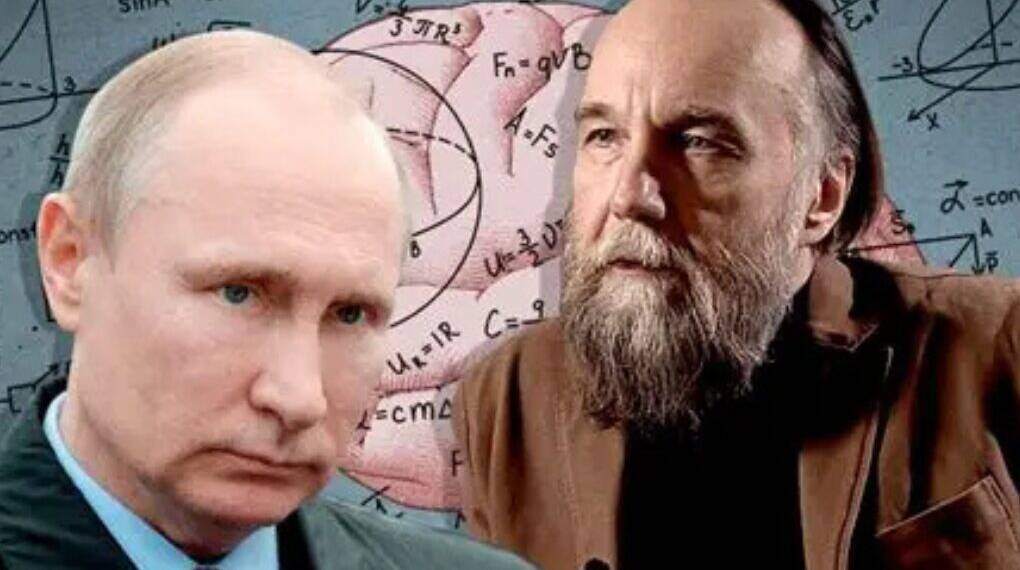In the wake of the much-anticipated Anchorage summit between U.S. President Donald Trump and Russian President Vladimir Putin, Russian philosopher and nationalist ideologue Alexander Dugin ignited controversy with a social media post on X.
Dugin claimed that Putin had handed Trump “solid, considerable documents on Russian history proving that Ukraine is a fake.”
The statement, made late on August 15, quickly went viral, garnering both support and ridicule, and spotlighting the Kremlin’s longstanding narrative that challenges Ukraine’s sovereignty.
Who is Alexander Dugin?
Alexander Dugin, often described as “Putin’s brain” or “Putin’s Rasputin,” is one of Russia’s most influential political philosophers, though his exact sway over the Kremlin remains debated. A champion of Eurasianist thought, Dugin envisions a multipolar world dominated not by Western liberalism, but by powerful civilizational blocs led by Russia, China, and allied states.
Dugin’s most famous work, Foundations of Geopolitics (1997), became influential within Russian military and strategic circles, advocating for Moscow to expand its influence across the post-Soviet space, weaken Western alliances, and reclaim what he calls Russia’s “historical lands.”
Ukraine, in his worldview, is not a legitimate state but an artificial construct—a narrative also advanced by Putin, most notably in his 2021 essay On the Historical Unity of Russians and Ukrainians.
Dugin’s Claim in Context
The Anchorage summit between Trump and Putin was billed as a potential turning point in the Ukraine conflict. While no major breakthroughs were announced, both leaders signaled optimism. Trump described the talks as “productive” and focused on saving lives, while Putin emphasized the need for a “just balance of power in Europe” and referred to Ukrainians as a “brotherly nation.”
In the days leading up to the summit, Ukraine’s Center for Countering Disinformation warned that Putin intended to present Trump with “historical materials,” including maps and documents framing Ukraine as an artificial entity.
Dugin’s claim that such documents were indeed presented gives weight to these warnings and reflects the Kremlin’s ongoing efforts to delegitimize Ukraine. By phrasing it as proof that “Ukraine is a fake,” Dugin used inflammatory rhetoric consistent with Russia’s information warfare strategy.
Historical Claims: Myths vs. Reality
Russian revisionist history often rests on three main arguments:
Kyivan Rus’ Heritage: Moscow claims direct descent from Kyivan Rus’, the medieval polity (9th–13th centuries) centered in Kyiv. However, historians note that Rus’ was based in modern-day Ukraine, and Muscovy—the precursor to Russia—emerged later under Mongol domination.
Soviet-Era Borders: Putin and others argue that Lenin “invented” Ukraine by granting it autonomy and attaching regions like Donbas and Crimea in the 1920s. Yet Ukraine’s national consciousness long predates Soviet policies, with independence movements active in the 19th century.
Post-Soviet Independence: In 1991, over 90% of Ukrainians—including in Russian-speaking regions—voted for independence. Russia itself guaranteed these borders under the 1994 Budapest Memorandum in exchange for Ukraine surrendering its nuclear arsenal, only to violate that agreement with the annexation of Crimea in 2014.
Independent scholars widely dismiss Russia’s arguments as pseudohistorical. As Ukraine’s disinformation watchdog noted, “No historical facts, let alone pseudohistorical fantasies, can be the basis for territorial claims.”
Reactions and Public Debate
Dugin’s post attracted more than 141,000 views within hours. Supporters hailed it as validation of Russia’s position, calling for “redrawing maps” and exposing alleged Ukrainian corruption. Critics, however, mocked the claim as absurd. One viral reply quipped, “Maybe I should give Trump solid, considerable documents on British history proving the USA is fake.”
The exchange highlights the broader battle over narratives. Russia seeks to frame the war as a historic correction, while Ukraine and its allies argue it is a blatant violation of sovereignty. Within the U.S., Dugin’s framing could resonate among segments of Trump’s base, especially as Trump himself has suggested exploring land swaps—a position closer to Russian demands than Kyiv’s insistence on full territorial integrity.
Implications for Diplomacy
If Putin truly presented Trump with such “documents,” the act goes beyond symbolism. It suggests Russia is trying to cement its worldview into negotiations, framing them not as a conflict between aggressor and victim but as a historical dispute over an “artificial” border. These risks entrench divisions further, as any U.S. acknowledgment of these materials could be read internationally as lending legitimacy to Russian claims.
At the same time, the incident underscores the difficulty of separating historical debate from modern geopolitics. For Russia, history is not merely academic—it is weaponized as a tool of statecraft. For Ukraine, defending its past is inseparable from defending its sovereignty.
Alexander Dugin’s claim about Putin’s “documents” is not about truth but about narrative power. By declaring Ukraine “fake,” Russia seeks to undermine the very foundation of Ukrainian nationhood, justify territorial aggression, and shape international perceptions.
Whether or not Trump takes these materials seriously, the fact that they were reportedly shared at all demonstrates how central disinformation and historical revisionism remain to Moscow’s strategy.
As negotiations continue, the challenge will be to separate propaganda from reality. A just peace cannot be built on fabricated histories. Dugin’s words, inflammatory as they may be, remind us that in today’s geopolitics, history is often the sharpest weapon of all.








